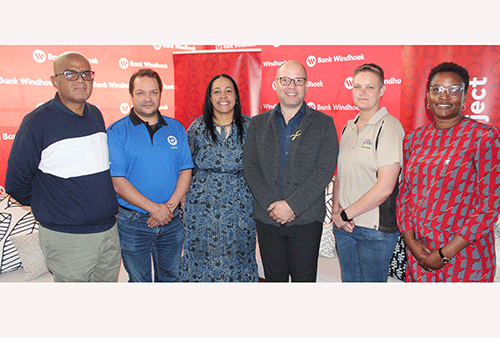Each year, about 400 000 children and adolescents globally develop cancer, the World Health Organisation says. In Namibia, around four to five children are
diagnosed every week.
This was shared by Terttu Uuyuni, Liberty Life Namibia board chairperson, at the launch of the Chica the Bear project this week. Liberty Life Namibia is a registered life insurance company which focuses on providing group-based and individual risk insurance products.
Chica the Bear is a Liberty Life Namibia initiative, in partnership with the Cancer Association of Namibia (CAN), that aims to raise funds through the sales of teddy bears, with all proceeds going to children fighting cancer in Namibia.
“In high-income countries, where comprehensive services are generally accessible, more than 80% of children with cancer are cured. In low- and middle-income countries (LMICs), less than 30% are cured,” said Uuyuni.
She added that only 29% of low-income countries report that cancer medicines are generally available to their populations, compared to 96% of high-income countries.
“Childhood cancer cannot generally be prevented or identified through screening. Most childhood cancers can be cured with generic medicines and other forms of treatment, including surgery and radiotherapy. The treatment of childhood cancer can be cost-effective in all income settings,” said Uuyuni.
She added: “These statistics are depressing at best for Namibia, because we know how difficult it can be to access proper care and medical attention, especially in the rural areas. On top of that, children often don’t fully understand why they are sick, and why they can’t just be healthy and play outside with their friends. Cancer is indiscriminate, and we shouldn’t have children die simply because they were born in a specific country.”
She stated that avoidable deaths from childhood cancers in low- and middle-income countries result from a lack of diagnosis, misdiagnosis or delayed diagnosis, obstacles to accessing care, abandonment of treatment, death from toxicity, and relapse.
At the end of 2021, Liberty Life decided to create a sponsorship initiative that could positively impact the lives of Namibians. The project aims to increase awareness and raise funds for children affected by childhood cancer, as well as support families travelling to Windhoek for treatment.
Childhood cancer data systems are needed to drive continuous improvements in the quality of care and to inform policy decisions, and not just data from upper middle-income countries, but right here in Namibia and from across this beautiful continent.
CAN chief executive officer Rolf Hansen said four to five children are newly diagnosed per week in the country, on average, tallying 230 annually.
“To further strengthen the support for families fighting a form of adolescent cancer, CAN established the Chica interim home for out-of-town childhood cancer patients to have safe accommodation while receiving treatment in Windhoek,” explained Hansen.
He said: “We hope that through the sales of these teddy bears, every child in the cancer wards will have a Chica Bear to cuddle with.”
The WHO states that the most common types of childhood cancers include leukaemias, brain cancers, lymphomas and solid tumours such as neuroblastoma and Wilms tumours.
In 2018, the WHO launched the Global Initiative for Childhood Cancer to provide leadership and technical assistance to governments to support them in building and sustaining high-quality childhood cancer programmes.
The goal is to achieve at least 60% survival for all children with cancer by 2030. This represents an approximate doubling of the current cure rate, and will save an additional one million lives over the next decade.



